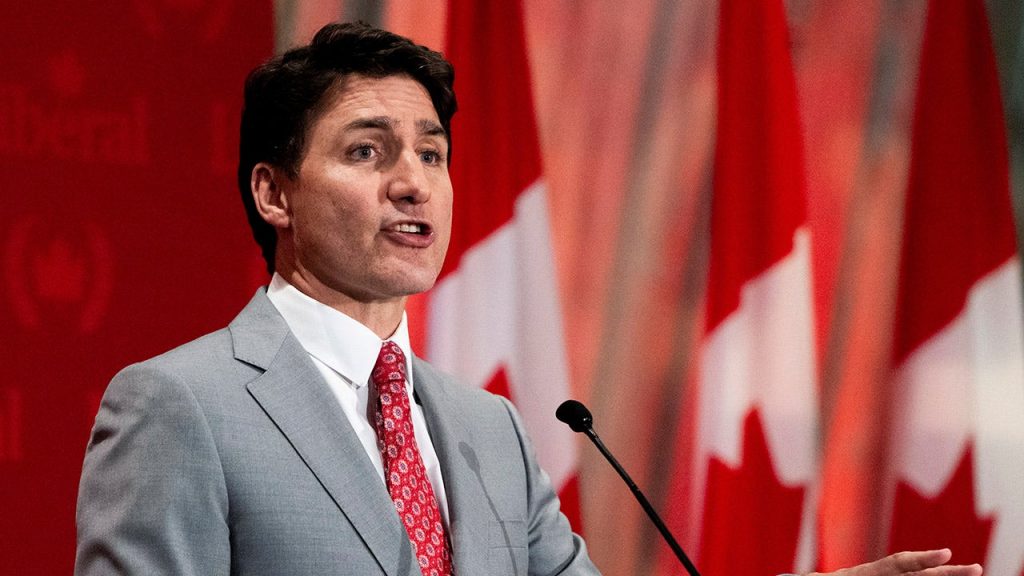Canadian Prime Minister Justin Trudeau has agreed to expand a public investigation into allegations that members of Parliament and senators conspired with foreign adversaries such as China and India to influence elections. The National Security and Intelligence Committee of Parliamentarians released a report claiming that some federal-level elected officials were involved in efforts by foreign states to interfere in Canadian politics. The government has agreed to support a motion by the Bloc Québécois to send the report to Commissioner Marie-Josée Hogue for further action. The report suggests that some lawmakers may have knowingly or unknowingly worked for foreign powers, which the Conservative and Bloc Québécois parties have condemned as a betrayal of Canadians.
The report, released on June 3, claims that foreign actors used deceptive and clandestine methods to cultivate relationships with Canadian lawmakers in order to advance their own interests. While some parliamentarians were unaware of the interference, others actively worked to assist foreign state actors. The report indicates that China has been identified as the largest foreign interference threat to Canada, with Russia focusing its efforts elsewhere and India emerging as the second-most significant threat. The Chinese government reportedly believed that engaging with certain members of Parliament would result in mobilizing support among ethnic Chinese voters. The report also mentions instances of covert funds transfers from India to politicians at all levels of government.
Opposition parties have called for the disclosure of the names of lawmakers implicated in the report, but Public Safety Minister Dominic LeBlanc stated that it would be against the law to do so. The Bloc Québécois motion sought to broaden the scope of the investigation to include parliamentarians potentially working for foreign powers. The government initially tasked Justice Marie-Josée Hogue with leading the inquiry last fall following claims of Chinese interference in Canadian elections. The report alleges that some elected officials were involved in influencing their colleagues on behalf of foreign nations, including providing confidential information to foreign officials.
Trudeau has emphasized the importance of taking foreign interference seriously and ensuring the integrity of Canada’s democracy. He condemned the rise of populist right-wing forces in European elections and expressed concern over political parties exploiting anger and fear. The report highlights various methods used by foreign states to covertly buy influence with candidates and elected officials, including the use of intermediaries to transfer funds. The government has not confirmed whether criminal charges will result from the report’s findings. Trudeau has committed to addressing the challenges faced by Canada and working towards solutions rather than amplifying anger without offering answers.
The report indicates that the Canadian Security Intelligence Service and Communications Security Establishment produced intelligence showing that foreign actors engaged with Canadians, including members of Parliament and senators, to advance their interests against Canada’s interests. Trudeau has supported an expanded public inquiry into the allegations raised in the report, in response to concerns about national security and democratic integrity. The report also mentions examples of members of Parliament working to influence colleagues on behalf of foreign states and wittingly assisting foreign actors. The revelations have sparked condemnation from opposition parties and calls for action to prevent such interference from undermining Canadian democracy.
The report highlights the People’s Republic of China as the largest foreign interference threat to Canada, focusing on various facets of Canadian government and society. Russia, while previously considered a significant threat, has shifted its strategic priorities elsewhere, with India now emerging as a major concern. The report suggests that the relationship between the Chinese government and some Canadian lawmakers may involve a quid pro quo arrangement to mobilize support among ethnic Chinese voters. The findings underscore the complex and persistent nature of foreign interference efforts, with the potential for influence on Canadian elections and politics.













